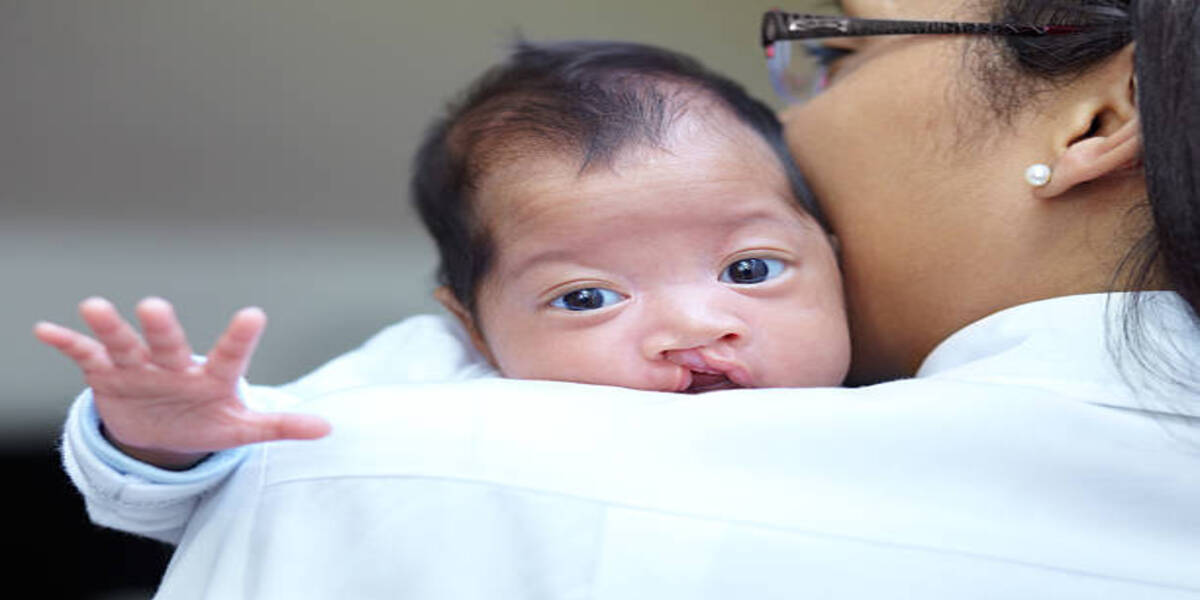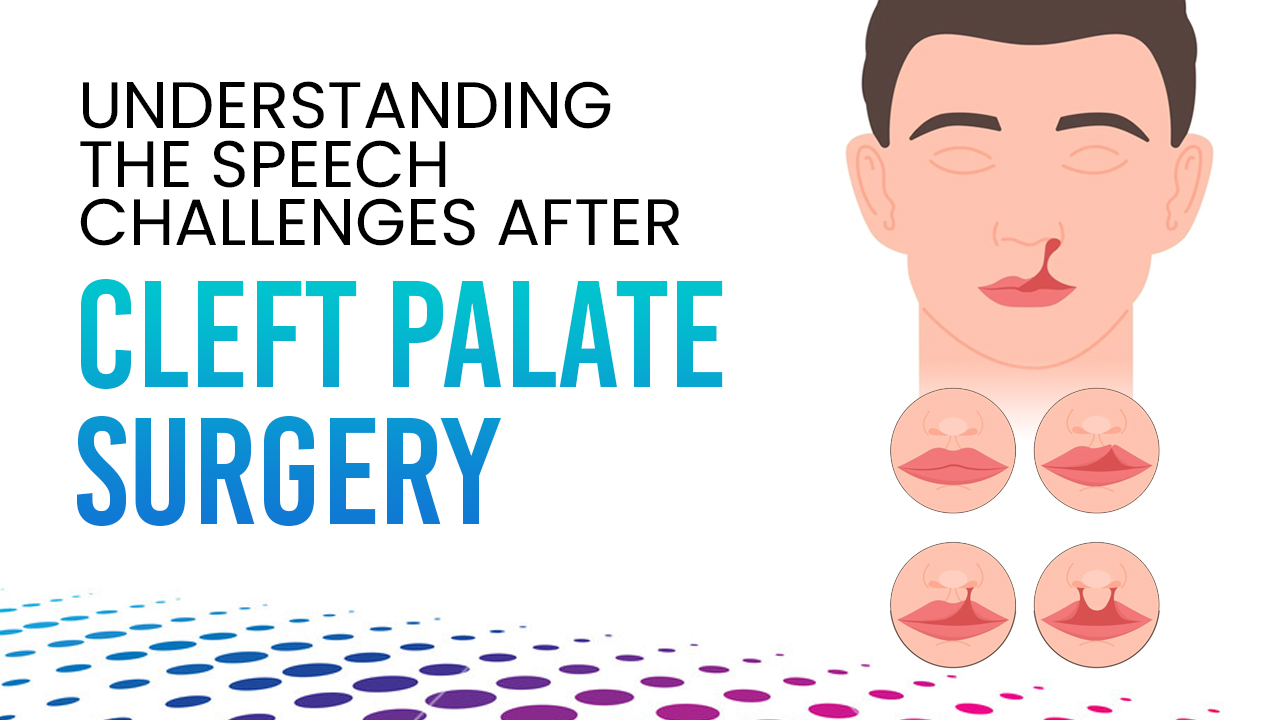Understanding The Challenges Of Speech After Cleft Palate Surgery
Navigate speech challenges after cleft palate surgery with Dr. Mathew PC. Learn techniques and therapy options for better speech in India.

Navigating speech after cleft palate surgery is not easy, but this guide offers simple tips on how to understand and manage these challenges. Let’s get started!
Having a cleft palate can feel overwhelming, but the good news is that there are ways to help manage your speech after surgery. With knowledge, dedication, and practice, you can develop new skills to help with clarity and pronunciation. In this guide, we’ll give you simple tips on how to understand and manage your speech after cleft palate surgery.
At our hospital, the highest standard of speech therapy is offered following cleft palate surgery. The dedicated efforts of Dr Mathew PC and his team are geared towards achieving optimal speech outcomes.
Speech After Cleft Palate Surgery
The cleft palate is a birth defect that affects the roof of the mouth and can cause speech difficulties. Children with a cleft palate may struggle with producing clear speech sounds, speaking at a normal volume, and speaking fluently. Cleft palate surgery in India can repair the physical structure of the mouth and improve speech, but speech therapy is usually necessary to achieve optimal results.
Understanding the Speech Challenges
Identifying the Parts of the Cleft.
A cleft is an opening in the roof of the mouth that is formed during fetal development. It can affect just one side (unilateral) of the palate or both sides (bilateral). It may also involve other tissues around the mouth such as the lip, nose, and cheek. Before any treatment is done, you’ll need to fully understand what parts of your palate have been affected by the cleft so you can best identify speech challenges. With this knowledge, you can work with a speech-language pathologist to strengthen your articulation and improve clarity when speaking.
What Causes Speech Concerns After Surgery?
After cleft palate surgery in India, the muscles in the area may be weakened or malnourished, leading to speech concerns. The articulation muscles need to be stronger for patients to effectively move their lips, tongues and jaws around when speaking. Additionally, airflow may be affected due to the smaller opening of the cleft palate which can lead to breathing and articulation issues. Seeking help from a speech-language pathologist can help identify ways to improve clarity and reduce any difficulty with speech caused by these challenges.
Definition of Speech Delay and Disorder in This Population.
Speech delay and disorder occur in this population when the normal process of speech development is disrupted by a cleft palate. The delay or disorder is characterized by problems with articulation, pronunciation and fluency. Individuals may also display phonological errors such as substituting one sound for another. An often-seen phonological error found in this population is lisping, suggesting the difficulty they may have with producing certain sounds correctly. Treatment can help correct lisping, as well as other types of speech issues.
Goals for Speech Therapy Involvement.
Speech therapy goals for cleft palate individuals focus on three components. They include improving the accuracy of their speech sounds, expanding their understanding of language, as well as developing communication confidence. Therapy will typically begin with the basics and progress from there; continuing until their speech clarity meets a satisfactory level that makes them socially confident among peers and adults in various settings.
Strategies for Communications Skills Development after Surgery.
After successful cleft palate surgery in India, speech therapy can be used to help understand and manage speech challenges that may still persist. Speech-language pathologists can provide individualized support to individuals with cleft palate, helping them assess their speech patterns, develop goals, and practice techniques during therapy sessions. They will often focus on improving articulation and pronunciation skills as well as expanding their social communication abilities. Additionally, they may provide tips or strategies for certain settings that pose a challenge for someone with a cleft palate such as giving presentations in class or participating in group conversations in crowded environments.
Speech Therapy Techniques for Cleft Palate
Speech therapy for cleft palate typically includes the following techniques:
- Articulation Therapy: This involves teaching the child to produce sounds correctly by focusing on the proper placement of the lips, tongue, and jaw.
- Resonance Therapy: This aims to improve the child’s voice quality by changing the way air moves through the nasal and oral cavities.
- Oral-motor Exercises: These exercises help to strengthen the muscles used in speech, including the lips, tongue, and jaw.
- Speech Breathing Techniques: This helps to improve the child’s speech by teaching them to breathe correctly while speaking.
- Voice Therapy: This focuses on improving the quality and volume of the child’s voice.
- Fluency Therapy: This helps to reduce stuttering and increase the child’s overall fluency.
- Pragmatic Language Therapy: This addresses social communication skills, such as turn-taking, eye contact, and understanding nonverbal cues.
- Augmentative and Alternative Communication (AAC): If needed, the speech therapist may also incorporate the use of sign language, communication boards, or other assistive technology to help the child communicate effectively.
It is important to note that every child is unique, and the specific speech therapy techniques used may vary based on the individual needs and goals of the child.
Best Speech Surgeon in India
Dr Mathew PC is a highly skilled and experienced surgeon who leads a team of dedicated professionals in providing the best speech therapy following cleft palate surgery. With a deep commitment to helping children overcome speech and communication challenges, Dr Mathew and his team work tirelessly to help each child achieve their full potential.
The team’s approach to speech therapy is comprehensive and tailored to the unique needs of each child. They use a variety of speech therapy techniques, including articulation therapy, resonance therapy, oral-motor exercises, speech breathing techniques, voice therapy, fluency therapy, and pragmatic language therapy, to help children improve their speech and communication skills.
In addition to their technical expertise, Dr Mathew and his team are known for their warm and compassionate approach. They work closely with each child and their family to understand their goals and develop a customized treatment plan to help them reach their full potential.
Many children who have undergone cleft palate surgery in India have been able to achieve significant improvements in their speech and communication abilities. Their commitment to providing the best speech therapy has made a lasting impact on the lives of countless children and their families.


